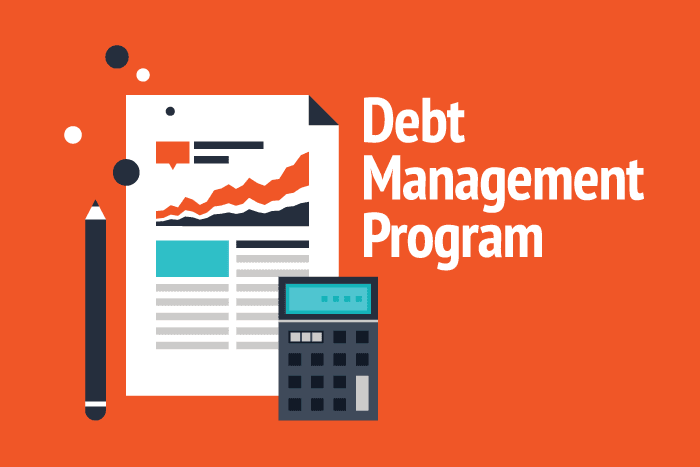Expert Tips and Methods for Applying an Effective Financial Obligation Management Plan
When it comes to navigating the intricacies of debt monitoring, having a well-balanced strategy is crucial for attaining financial stability. Carrying out professional pointers and approaches can make a considerable difference in your journey towards financial obligation relief. From analyzing your existing economic standing to negotiating with financial institutions, each step plays a critical role in forming an effective financial obligation administration strategy. By understanding the complexities of financial obligation management and embracing proven methods, individuals can pave the way for an extra secure financial future.
Assessing Your Present Financial Situation
Prior to getting started on a financial debt administration strategy, it is vital to extensively review your existing economic standing. Understanding your economic situation is the foundational step towards effectively taking care of and minimizing your financial debt.

Creating a Realistic Budget
Recognizing your existing financial situation lays the groundwork for creating a reasonable budget that lines up with your debt monitoring objectives and financial capacities. When developing a spending plan, it's critical to precisely track your revenue, costs, and debt responsibilities. By classifying your expenses, you can identify areas where you might require to cut back to free up funds for financial obligation payment.

Focusing On and Taking On Financial Obligations
To properly regain control of your finances and work in the direction of economic stability, focusing on and tackling your financial obligations is a vital step in your financial debt administration strategy. Recognize high-interest debts that are costing you the most money and focus on paying them off.
After identifying your high-interest financial debts, think about utilizing strategies like the financial obligation snowball or debt avalanche approach to pay them off systematically. The financial debt snowball technique entails paying off the smallest financial obligations first, while the financial debt avalanche method focuses on financial debts with the greatest interest prices. Choose the technique that aligns best with your financial objectives and motivates you to keep making development.
Furthermore, think about discussing with lenders for lower rates of interest or establishing up a layaway plan if you're having a hard time to fulfill your present commitments. Seeking aid from a debt therapist or financial advisor can also provide important understandings and advice on just how to properly tackle your debts - debt management plan services. By focusing on and resolving your financial obligations strategically, you can lead the way in the direction of a debt-free future and enhanced monetary wellness
Bargaining With Lenders
When engaging in financial obligation administration, bargaining with lenders is an important step in the direction of finding mutually valuable solutions for debt repayment. Open communication with lenders can result in modified repayment plans, minimized rate of interest, and even settlement offers. Before starting arrangements, it is vital to have a clear understanding of your financial situation, including your income, expenses, and the total quantity of financial obligation owed. This info will not just help you make sensible deals however likewise show to creditors that you are dedicated to fixing the financial debt.

Building Healthy Economic Habits
Incorporating regular budgeting practices is essential for growing healthy financial routines. Budgeting enables individuals to track their income and expenses, allowing them to make enlightened decisions concerning their financial concerns. Establishing specific economic objectives, such as conserving for emergencies or retirement, can supply a clear roadmap for managing money successfully.
Another secret facet of building healthy financial behaviors is living within one's means. This involves investing less than what is gained and preventing unnecessary debt. Differentiating and taking on a thrifty state of mind in between demands and wants can assist individuals make even more sensible costs selections.
On a regular basis checking and assessing financial statements credit reports are essential habits that advertise economic awareness and responsibility. By staying informed about their monetary standing, individuals can recognize potential concerns beforehand and take aggressive actions to resolve them.
Moreover, establishing a cost savings my explanation behavior, despite having percentages, can contribute dramatically to long-lasting monetary safety and security. Saving frequently not just builds an economic padding for unanticipated expenditures yet also cultivates a feeling of technique and duty towards finance. By continually exercising these practices, people can lay a solid structure for a stable economic future.
Final Thought
To conclude, carrying out a successful financial debt management strategy needs an extensive evaluation of one's monetary circumstance, the development of a practical budget, prioritizing and taking on financial debts, negotiating with financial institutions, and building healthy economic habits (debt management plan services). By complying with these specialist pointers and approaches, people can take control of their funds and job towards achieving monetary security and flexibility from debt
Comprehending your existing economic situation lays the foundation for developing a sensible budget that straightens with your debt management goals and monetary abilities.To efficiently reclaim control of your finances and work in the direction of financial stability, focusing on and tackling your financial obligations is a vital step in your debt monitoring strategy.After identifying your high-interest debts, think about making use of strategies like the debt snowball or financial debt avalanche method to pay them off methodically. The financial obligation snowball method involves paying off the tiniest financial debts initially, while the debt avalanche method focuses on financial debts with the highest passion rates.When engaging in financial obligation management, negotiating with financial institutions is a vital step in the direction of finding equally useful options for debt repayment.
Comments on “Maximize Your Financial Possible with Expert Debt Management Plan Services”